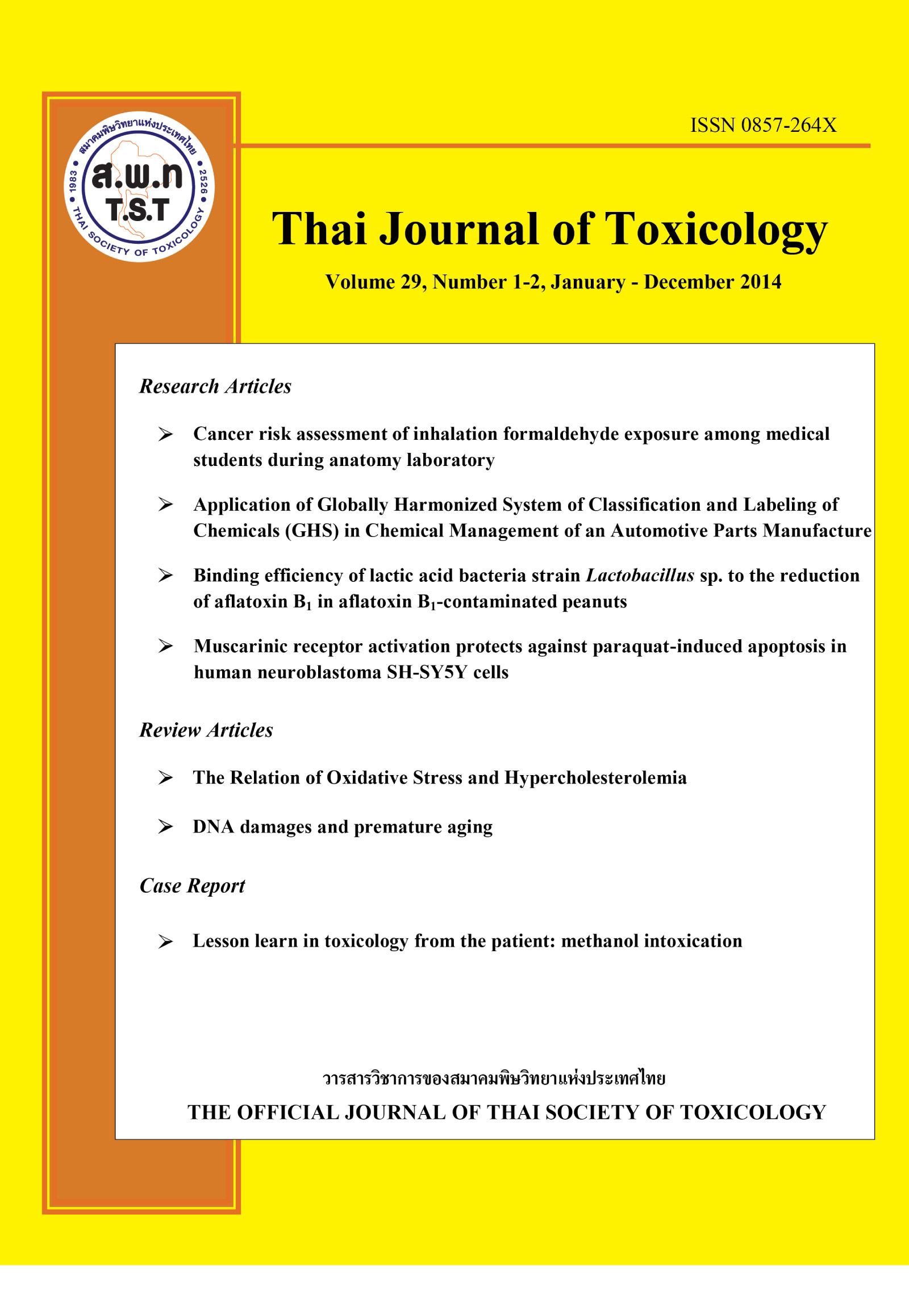Muscarinic receptor activation protects against paraquat-induced apoptosis in human neuroblastoma SH-SY5Y cells
Main Article Content
Abstract
Paraquat (PQ), a widely used herbicide, has been shown to exhibit neurotoxicity partly through its ability to induce oxidative stress and apoptosis. Muscarinic receptor activation was reported to protect cell against oxidative stress. Therefore, the present study examined whether muscarinic receptor activation provided protection against PQ-induced apoptosis. The results showed that PQ induced cytotoxicity in human neuroblastoma SHSY5Y cells. PQ caused augmentation in proteolysis of poly-ADP ribose-polymerase (PARP) which is a substrate of caspase 3/6 indicating apoptosis activation by PQ. Moreover, levels of p53 which is a protein involved in apoptotic cell death were increased following PQ treatment. Treatment with muscarinic receptor agonists, carbachol and oxotremorine-M attenuated PQ-induced PARP proteolysis and elevation of p53. Interestingly, the attenuation actions of carbachol and oxotremorine-M were abolished by pretreatment with a muscarinic receptor antagonist, atropine. These results indicate that muscarinic receptor activation provides protection against PQ-induced apoptotic cell death.


